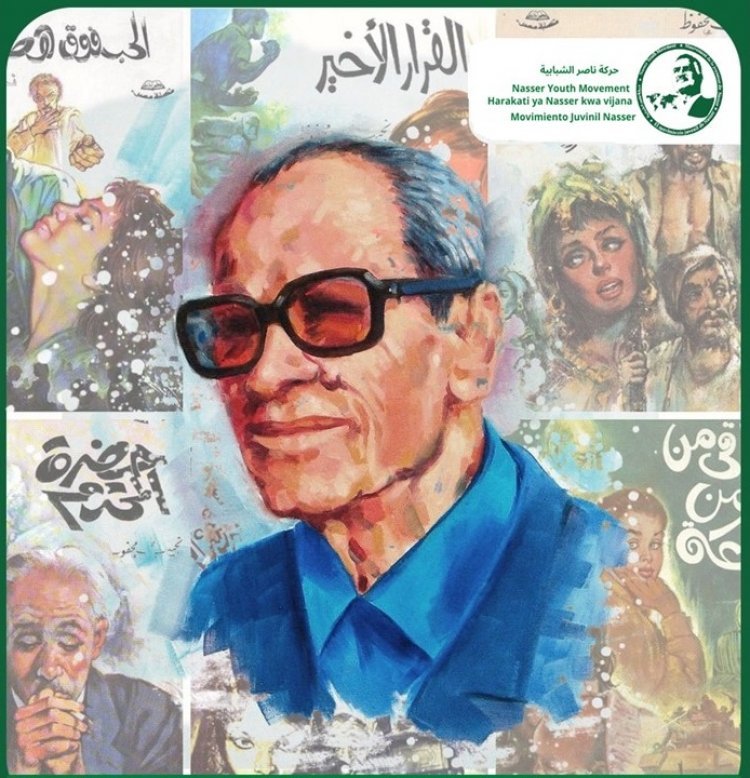The great novelist Naguib Mahfouz

Naguib Mahfouz gracefully rests on our shoulders, stating in an elegant text, "How can we grow tired when the sky is so blue, the earth so green, the roses so fragrant, the heart so miraculously capable of love, and the soul so infinitely powerful in faith? How can we grow tired when we have those we love, those we admire, those who love us, and those who admire us in this world?"
The Egyptian writer was born in the Al-Jamaliyah neighborhood of Cairo in 1911 and graduated from Cairo University, earning a degree in philosophy. In the 1930s, Naguib Mahfouz published his first works and writings, including a collection of short stories published in the newspapers Al-Ahram and Al-Hilal. He then released the novel "Abath Al-Aqdar." The Egyptian novelist and brilliant screenwriter immersed himself in his work, which was dominated by the local Egyptian neighborhood but possessed universal qualities. This created a significant breakthrough in Egyptian literature in the 1940s. He published his novels "Radubis" and "Khan Al-Khalili" and continued to produce writings in various trilogies, which later gained international acclaim. In October 1988, he became the first Egyptian Arab to receive the Nobel Prize in Literature.
His most notable works, translated into several languages, include the "Cairo Trilogy," consisting of "Palace Walk," "Palace of Desire," and "Sugar Street." These novels depict the lives of three generations in Cairo, starting from World War I to the July Revolution of 1952. He also released his famous "Children of Gebelawi" trilogy, among many other literary works.
In the field of cinema, more than 25 of his works were adapted into films and dramas, often with the collaboration of the renowned director Salah Abu Seif. Together, they explored social life through literature and visual storytelling, focusing on character development, cultural sources, and the social environment of characters within cities or neighborhoods, like in the film "The Beginning and the End," where Naguib Mahfouz summarized his writings on Egyptian society during challenging times before and after socialist transformations.
Mahfouz's writing has a unique flavor, revolving around popular Egyptian neighborhoods and the broader Egyptian environment. His works uncover the inner lives of middle-class Egyptians, delving into their motivations, desires, and dreams.
It's worth noting that we see Naguib Mahfouz as a living example of the Bozoor Project, where we search for values and solidarity in popular culture and the popular heroes who have enriched reality and contributed to its transformation. Studying popular culture brings us closer to the grassroots foundations we aim to gather and organize for the development of local society with global qualities, opening horizons for interaction with the contemporary world, recognizing Egyptian history and cultural heritage. It uses the positive elements of culture as a source of strength for development and as a foundation for Egypt's soft power regionally and globally.

